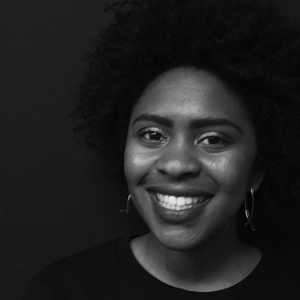Colvin: Black women deserve recognition, not erasure
When it comes to police brutality, the “Say Her Name” movement finally brought attention to female victims of the practice. However, it’s important to know the names behind the hashtag.
Today, her name is Shakara. She is a 16-year-old student at Spring Valley High School in Columbia, South Carolina, and her violent encounter with her school’s police officer went viral.
In the video, Richland County Senior Deputy Ben Fields approaches Shakara, who is sitting calmly in her seat. He flips the girl over in her chair, drags her across the classroom floor and uses his full weight against her as he handcuffs her. Shakara was subject to this violent arrest as punishment for not putting her phone away fast enough, according to the Los Angeles Times.
The Spring Valley High School incident has rightfully gained national attention as yet another instance of police brutality. However, the mistreatment of black girls and women by the police is not nearly the anomaly that some media make it out to be: they are just as susceptible to police violence as black boys and men are.
When it comes to acknowledging the gender of police victims and the work of the women fighting for justice, news producers and consumers — especially those who are activists — should recognize that women have as much of a stake in America’s fractured relationship with law enforcement as men do.
The names of boys and men — including Mike Brown, Eric Garner, Trayvon Martin, Walter Scott and Tamir Rice — are on the tips of social justice warriors’ tongues. Yet these activists often neglect to mention the women — Tanisha Anderson, Sandra Bland, Janisha Fonville, Natasha McKenna, Yvette Smith, among others — who have also been unfairly brutalized at the hands of police officers. This includes trans* women of color who are also regularly harassed and killed by the police.
Racial justice advocates often forget about the women who have lead this new wave of civil rights: Johnetta Elzie, Bree Newsome, legal analyst Sunny Hostin and journalist Fredricka Whitfield, the Black Lives Matter founders, Patrisse Cullors, Opal Tometi and Alicia Garza. Contributing to this movement are also the female relatives and friends of victims who have become social justice advocates in the wake of their loved ones’ deaths.
The erasure of black women from today’s pro-black movements mirrors the first American civil rights movement, whose main faces are those of men. History-based media seldom bring light to the likes of Ella Baker, Daisy Bates, Angela Davis, Fannie Lou Hamer, Dorothy Height, Pauli Murray and Ruby Doris Smith Robinson. These women were actively influential in the 1950s and 1960s civil rights movements, and spoke out against the underlying gender hierarchy in male-dominated civil rights groups.
Although rarely discussed, the work of early female civil rights activists is important in that black women have a particular insight into oppression and the struggles of women of color. Pro-blackness and feminism are construed as separate schools of thought and are such in practice. Yet, black women have to balance both.
Women of color can be forced to detach their gender identity and racial identity for the sake of interaction, but, in reality, women of color cannot compartmentalize their race and gender. Women of color have to deal with sexism, racism and the combination of the two — for black women, the coined term is “misogynoir.”
To prevent history from repeating itself, black women deserve their kudos and remembrance just as much as the men involved in social justice movements do — not for having a higher stake in the game of “who’s-more-oppressed.”
The heart of the matter is that women who dedicate their efforts to improving race relations in the United States don’t get nearly the credit that they deserve, which is a contributing factor in the continued violence against black women and girls that is often swept under the rug.
By no means should gender play a role in how the public reacts; rather, the public should afford all victims of police violence the same reverence. And for those who are seeking an end to police brutality, they should acknowledge the black women in the movement so more black girls don’t have to experience what Shakara did.
Caroline Colvin is a sophomore magazine journalism major. Her column appears weekly. She can be reached at ccolvin@syr.edu and followed on Twitter at @fkacaro.
Published on November 5, 2015 at 12:01 am






